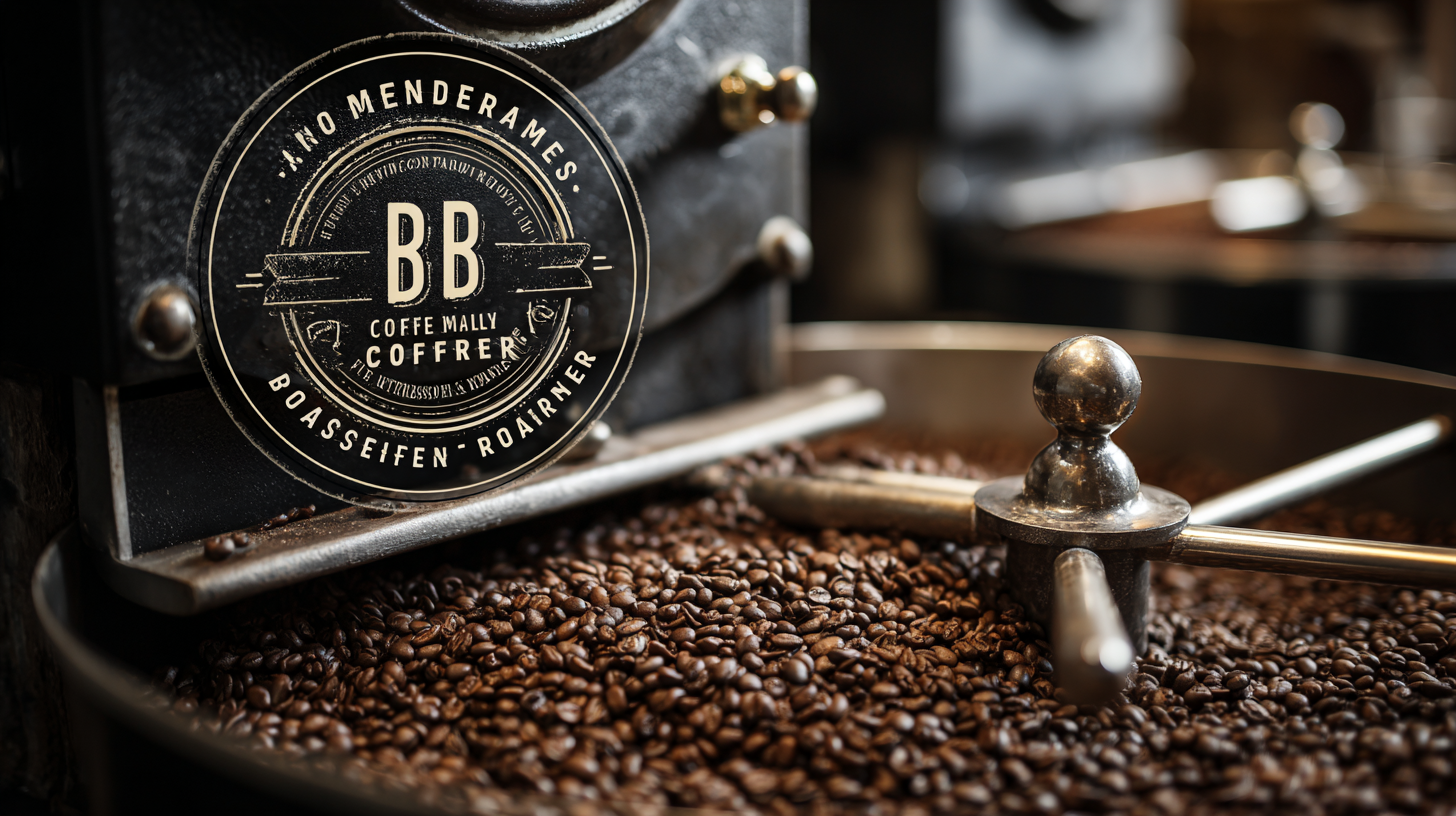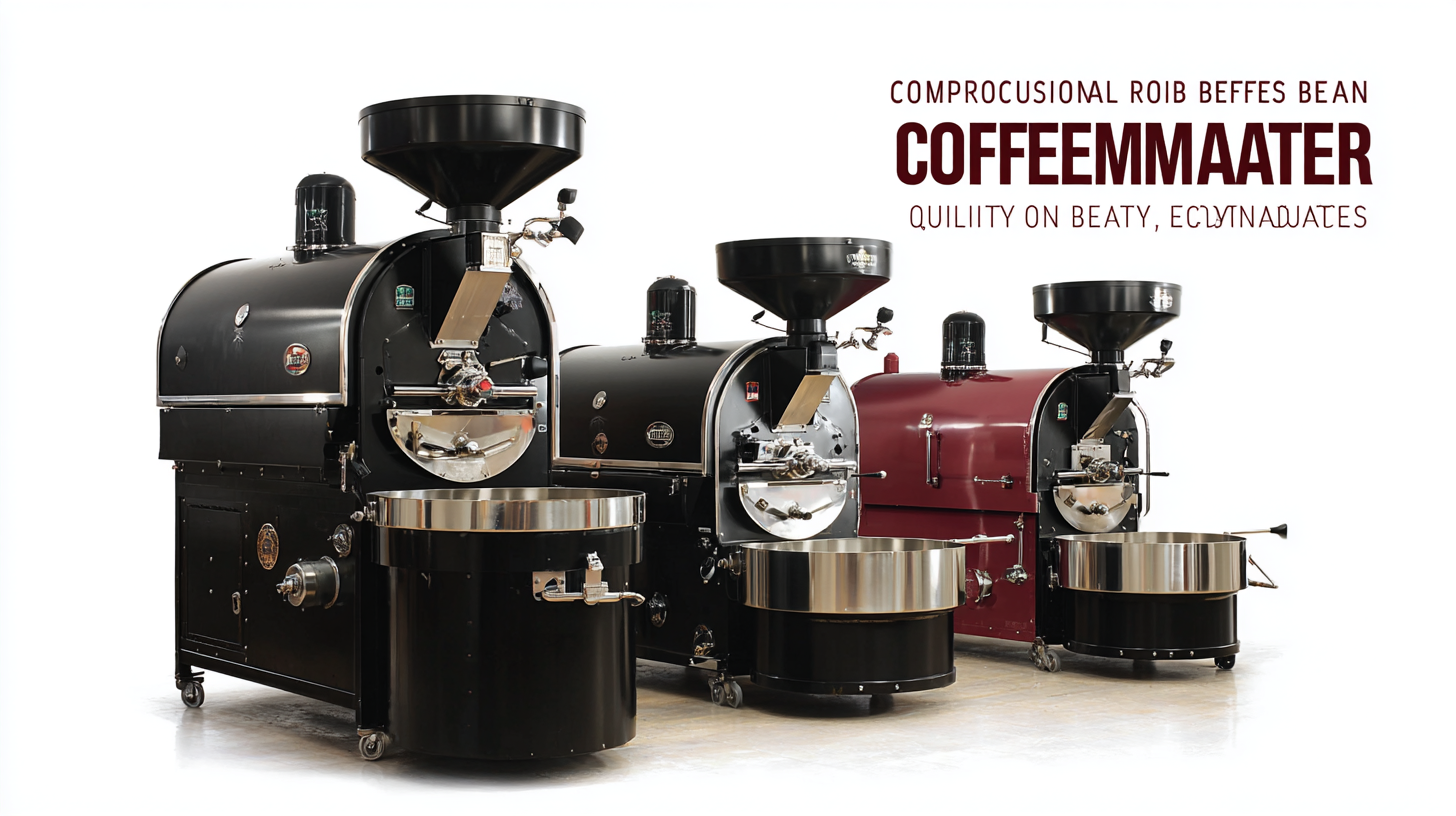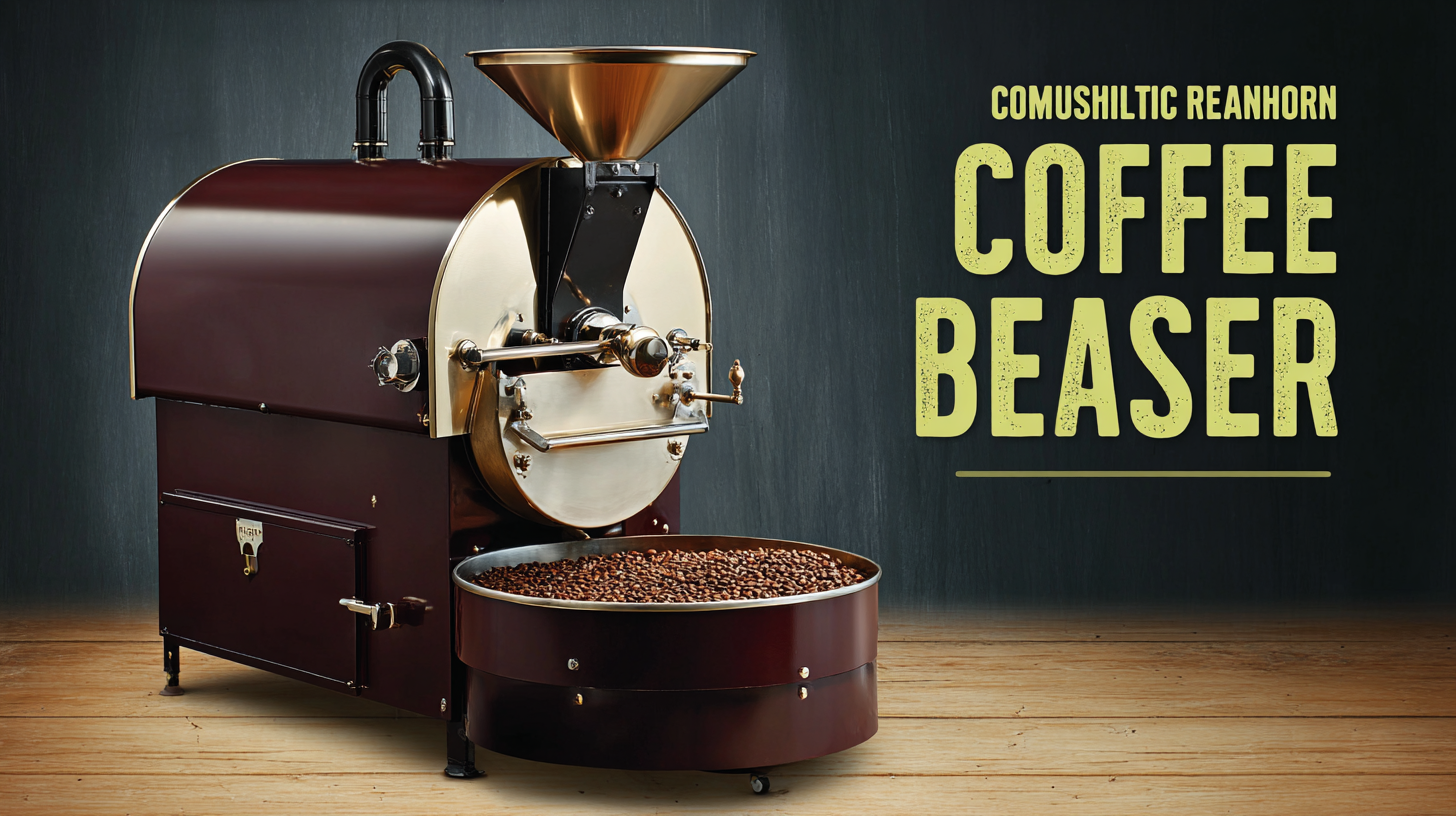Your Guide to Choosing the Best Commercial Coffee Bean Roaster Manufacturers: Solutions for Quality and Efficiency
In the ever-evolving world of coffee, the selection of the right commercial coffee bean roaster is crucial for businesses aiming to deliver exceptional quality and flavor. As the demand for specialty coffee continues to rise, understanding how to choose the best manufacturers becomes essential for any coffee venture. This guide delves into evaluating commercial coffee bean roaster options while emphasizing the importance of quality and efficiency in the roasting process. With a focus on the excellence of Chinese manufacturing that serves the global market, we’ll explore key factors to consider, including technological advancements, production capabilities, and customer support. By making informed decisions, you can ensure that your coffee is not only roasted to perfection but also positioned to thrive in a competitive landscape.

Top 5 Features to Look for in Commercial Coffee Bean Roasters
When selecting the ideal commercial coffee bean roaster, there are several key features that should guide your decision-making process. First and foremost, consider the roasting capacity. A machine that offers varying batch sizes is essential for adapting to demand fluctuations, whether you're filling large orders or testing new blends. Moreover, the ability to control temperature with precision ensures the best flavor extraction, which is crucial for producing high-quality coffee.
Another important feature is the level of automation versus manual control. Though fully automated roasters can streamline operations, a hybrid option allows skilled roasters to intervene when necessary, ensuring that each batch meets their exact standards. Additionally, durability and the ease of maintenance should not be overlooked. A robust machine that requires less frequent repairs will save time and money in the long run, allowing your focus to remain on delivering exceptional coffee to your customers. With these features in mind, you can confidently choose a roaster that supports both quality and efficiency, setting your business up for success in the competitive coffee market.

7 Key Benefits of Investing in Quality Coffee Roaster Manufacturers
Investing in quality coffee roaster manufacturers offers numerous benefits that can significantly elevate your coffee business. One of the primary advantages is the consistent flavor profile achieved through advanced roasting technologies. Quality roasters are engineered to ensure even heat distribution, which enhances the extraction of oils and flavors from the beans, resulting in a superior cup of coffee that meets customer expectations.
Another key benefit is improved efficiency. High-quality roasters often come with features that streamline the roasting process, reducing energy consumption and time spent per batch. This efficiency not only boosts productivity but also allows for greater scalability as your business grows. Furthermore, reliable manufacturers provide excellent customer support and maintenance services, ensuring that your roasting operations run smoothly without costly downtimes, ultimately protecting your investment and enhancing your brand's reputation for quality.
5 Factors That Impact Coffee Roasting Efficiency and Quality
When selecting a commercial coffee bean roaster, understanding the factors that impact roasting efficiency and quality is crucial. One of the primary considerations is temperature control. Research has shown that the interaction of temperature and roasting time significantly affects caffeine levels and overall flavor profiles. For instance, studies using specialized roasting equipment revealed that precise control of both parameters leads to better retention of desirable coffee characteristics, ultimately enhancing the final product.
 Another essential aspect is the roasting method itself. Convection roasters have gained popularity due to their ability to provide consistent results and efficiency. These machines circulate hot air around the beans, ensuring even roasting and minimizing the risk of overcooked batches. As margins grow tighter in the industry, investing in quality control systems becomes critical. Roasters who prioritize these technological advancements not only improve their product quality but also manage operational costs effectively, paving the way for success in an increasingly competitive market.
Another essential aspect is the roasting method itself. Convection roasters have gained popularity due to their ability to provide consistent results and efficiency. These machines circulate hot air around the beans, ensuring even roasting and minimizing the risk of overcooked batches. As margins grow tighter in the industry, investing in quality control systems becomes critical. Roasters who prioritize these technological advancements not only improve their product quality but also manage operational costs effectively, paving the way for success in an increasingly competitive market.
10 Reasons Why Manufacturer Support is Crucial for Roaster Performance
When selecting a commercial coffee bean roaster, understanding the importance of manufacturer support cannot be overstated. The performance of your roaster hinges not only on its design and technology but also on the ongoing support you receive from the manufacturer. This support can manifest in various ways, from providing timely maintenance services to offering training sessions for your staff. Such assistance can significantly prolong the lifespan of your equipment and optimize the roasting process, ensuring that your coffee meets high-quality standards.
Moreover, dependable manufacturer support helps in troubleshooting issues quickly. Delays caused by equipment malfunctions can lead to lost revenue and dissatisfied customers, making efficient support essential for maintaining smooth operations. Responsive customer service ensures that any technical difficulties are resolved promptly, minimizing downtime and enhancing productivity. Furthermore, collaboration with a supportive manufacturer often leads to access to additional resources, such as updated techniques and innovations in roasting technology, keeping your operation competitive in a crowded market.
3 Types of Roasting Technologies and Their Advantages for Your Business
When it comes to selecting the best commercial coffee bean roaster for your business, understanding the different types of roasting technologies is crucial for balancing quality and efficiency. The most prominent roasting methods include drum roasting, air roasting, and hybrid systems. Each technology offers distinct advantages that can significantly impact the flavor profile of the coffee and operational efficiency.
Drum roasters, for example, are favored for their ability to develop rich and complex flavors due to the slower roasting process that allows for more even heat distribution. This method is often preferred by artisanal roasters aiming for unique taste experiences. On the other hand, air roasters utilize hot air to roast beans quickly and uniformly. They are known for producing brighter flavors and are ideal for businesses focused on efficiency, as they typically allow for faster batch processing. Hybrid systems, which combine elements of both drum and air roasting, are gaining traction as they offer flexibility and allow roasters to experiment with various profiles, catering to diverse customer preferences.
As the coffee industry evolves, adaptability remains critical. Innovations such as eco-friendly roasting technologies are increasingly becoming a priority for industry players. Investing in advanced equipment not only helps in enhancing consistency and quality but also aligns with the growing consumer demand for sustainable practices. Understanding the advantages of each roasting technology will equip business owners to make informed decisions that align with their goals in 2025 and beyond.


